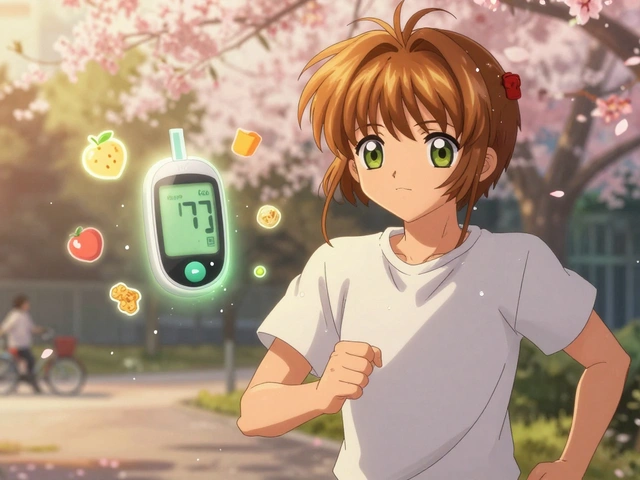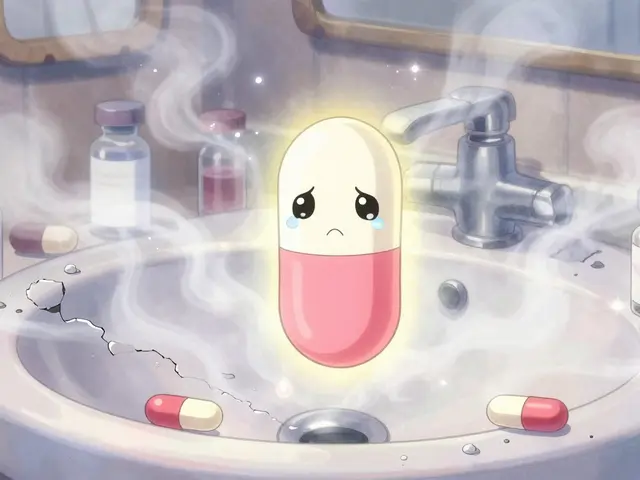Indecisiveness is a common symptom that affects many people. It can be a sign of anxiety or depression, but it can also be a symptom of bipolar disorder. Bipolar disorder is a mental health condition characterized by extreme mood swings between depression and mania. Individuals who experience mania may have difficulty making decisions, which can lead to feelings of confusion and difficulty focusing. In this blog post, we will explore the link between indecisiveness and bipolar disorder.
Bipolar disorder is a complex condition that can manifest in different ways. It is often characterized by episodes of mania or hypomania, during which an individual may become extremely energized, have racing thoughts, and be easily distracted. During these episodes, an individual may have difficulty concentrating and making decisions. This can lead to feeling overwhelmed and confused, and the individual may be unable to make decisions quickly or effectively.
Indecisiveness can also be a symptom of depression, which is a common feature of bipolar disorder. Depression is characterized by feelings of hopelessness, worthlessness, and apathy. During depressive episodes, an individual may have difficulty making decisions due to feeling overwhelmed, or lack of motivation. This can lead to a feeling of being "stuck," and may cause an individual to avoid making decisions altogether.
It is important to note that indecisiveness does not necessarily indicate a bipolar disorder diagnosis. Many different factors can lead to difficulty making decisions, and it is important to talk to a mental health professional to determine the cause. Additionally, individuals may experience periods of indecisiveness without any underlying mental health condition.
If you or someone you know is struggling with indecisiveness, it is important to seek help. Talking to a mental health professional can help to determine the cause of the indecisiveness and determine the best course of treatment. Treatment may include medications, therapy, and lifestyle changes, depending on the cause and severity of symptoms.
Indecisiveness is a common symptom of bipolar disorder, yet it is often overlooked in diagnosis and treatment. It can manifest in many ways, from difficulty committing to major life decisions to struggling to choose between two seemingly equal choices. Recognizing and treating the symptoms of indecisiveness can help those living with bipolar disorder lead more stable, productive lives.
Signs and Symptoms of Indecisiveness in Bipolar Disorder
Indecisiveness in bipolar disorder can manifest in many ways. Some of the most common signs and symptoms of indecisiveness include:
- Procrastination
- Trouble making decisions, even when presented with all the necessary information
- Difficulty committing to major life decisions
- Struggling to choose between two seemingly equal choices
- Avoiding making decisions altogether
It is important to note that not everyone with bipolar disorder experiences indecisiveness. If you or someone you know is exhibiting any of the signs and symptoms of indecisiveness, it is important to talk to a mental health professional to determine if a diagnosis of bipolar disorder is present.
Having a mental health condition like bipolar disorder can make it difficult to make decisions. In fact, many individuals with bipolar disorder experience indecisiveness as a symptom of the condition, making it challenging to make even the most basic decisions. Indecisiveness can have a negative impact on an individual’s life, as it can lead to difficulty in making progress, achieving goals, and living a fulfilling life. Fortunately, there are a few steps that can be taken to help individuals with bipolar disorder overcome indecisiveness.
The first step is to identify the root cause of the indecisiveness. It is important to understand what is causing the indecisiveness, as this can help to inform the steps that need to be taken to address it. For example, if the indecisiveness is related to fear of making the wrong decision, then it is important to recognize and address this fear. Once this has been done, it can be easier to make decisions.
Another step is to make a plan. Taking the time to plan out decisions can help to reduce the feeling of being overwhelmed by having to make a decision. This can be done by writing down the pros and cons of each option, as well as considering any potential risks. It is also important to take the time to weigh the importance of each factor, as this can help to narrow down the options and make it easier to make a decision.
Finally, it is important to practice self-care. Taking the time to practice self-care can help to reduce stress, which can in turn help to reduce indecisiveness. This can include activities such as getting enough sleep, eating a balanced diet, and engaging in activities that help to reduce stress. Additionally, it is important to seek professional help if the indecisiveness is too overwhelming.
Indecisiveness can be a difficult symptom of bipolar disorder to manage. However, by taking the steps outlined above, it is possible to overcome indecisiveness and make progress in life. It is important to remember to be patient with oneself and to not be too hard on oneself when it comes to making decisions.
Indecisiveness is a common symptom of bipolar disorder and can have a significant impact on a person’s life. It can lead to difficulty making decisions, feeling overwhelmed, and even avoiding making decisions altogether. Fortunately, there are ways to manage it as part of a comprehensive bipolar disorder treatment plan.
1. Recognize the Symptoms: The first step in managing indecisiveness is recognizing when it is occurring. Pay attention to feelings of overwhelm, difficulty making decisions, or avoiding decisions altogether. These may be signs that indecisiveness is impacting your life.
2. Identify Triggers: Once you have identified times when indecisiveness is present, it is important to identify what is triggering it. Triggers can include stress, anxiety, fatigue, or certain situations. Once these triggers are identified, you can work to minimize them or create coping strategies.
3. Break Down Decisions into Smaller Steps: Making decisions can be overwhelming, especially when dealing with something complicated or difficult. Breaking down the decision into smaller steps can make it less overwhelming and easier to manage. Start by making a list of the pros and cons of each option, and then narrow it down to the best option.
4. Take Time to Make Decisions: Indecisiveness often arises when we feel rushed to make a decision. Taking the time to make a decision can be beneficial. Give yourself time to think through all the options and come to a conclusion without feeling rushed or stressed.
5. Seek Help: If you find that you are struggling to manage your indecisiveness, it may be helpful to speak to a mental health professional. A therapist can help you identify the underlying cause of your indecisiveness and develop strategies to manage it.
Indecisiveness can be a difficult symptom to manage, but with the right strategies, it can be done. Taking the time to identify the triggers and breaking down decisions into smaller steps can be helpful in managing it as part of your bipolar disorder treatment plan.











Anna Cappelletti March 2, 2023
Hey there, I totally get how overwhelming indecisiveness can feel, especially when mood swings come into play. It’s helpful to remember that you’re not alone-many folks with bipolar report similar struggles during manic or depressive phases. Try breaking decisions down into tiny steps; even picking a shirt can become a confidence booster. Celebrate the small wins and give yourself grace when the brain feels foggy. Keep leaning on your therapist and trusted circle; they can help you spot patterns and build stronger decision‑making muscles.
Dylan Mitchell March 16, 2023
OMG, the *drama* of not being able to pick a latte flavor is like, totally a mental health crisis!!! I feel the *sweeet* panic when my mind bounces from one thought to the next-like a rollercoaster in my head.
Elle Trent March 29, 2023
TL;DR: indecisive cognition often correlates with hypomanic oscillations in affective spectrum.
Jessica Gentle April 11, 2023
First off, kudos for seeking info-awareness is the first step toward mastery. When you notice indecisiveness creeping in, ask yourself whether you’re in a manic, hypomanic, or depressive state; each has distinct cognitive signatures. In mania, racing thoughts can hijack the decision process, while depression may freeze you with hopelessness. A practical tactic is the “pros‑and‑cons” matrix, but keep it simple: list just three points per side to avoid overload. Pair this with timed intervals-give yourself, say, 15 minutes, then commit. Mindfulness breathing can also calm the neural chatter that fuels doubt. Don’t hesitate to loop in your psychiatrist; sometimes medication adjustments can smooth out the cognitive turbulence. Lastly, remember that flexibility is okay-sometimes the best decision is to revisit later with a clearer mind.
Samson Tobias April 24, 2023
It is worth noting that the neurobiological mechanisms underlying decision‑making deficits in bipolar disorder involve dysregulated dopamine pathways. Research indicates that during manic episodes, heightened dopaminergic activity may accelerate thought flow, whereas depressive phases often see diminished signaling, leading to paralysis. Consequently, therapeutic interventions that modulate these pathways-such as mood stabilizers-can indirectly improve decisional capacity. Cognitive‑behavioral strategies that target executive function also show promise. Maintaining a structured routine can serve as an external scaffold, reducing the cognitive burden of spontaneous choices. Engaging in regular physical activity has been linked to improved prefrontal cortex functioning, which supports clearer judgments. In sum, a multimodal approach tends to yield the best outcomes for managing indecisiveness.
Alan Larkin May 8, 2023
Mate, you’re basically reciting a textbook-nice job, but let’s not forget real‑world hacks: set a daily “decision‑time” slot, and use a simple 👍/👎 emoji to lock in a choice fast. 😄
John Chapman May 21, 2023
While the pros‑and‑cons matrix is indeed a respectable tool, I must emphasize that its efficacy is limited without integrating Bayesian inference to weigh prior probabilities. In other words, replace vague gut feelings with quantitative priors, and you’ll achieve a decision framework of superior epistemic rigor.
Tiarna Mitchell-Heath June 3, 2023
Stop beating around the bush-if you’re constantly stuck, it’s a clear sign your meds are off and you need a professional to step in now. No more excuses, just schedule that appointment and get your life back on track.
Katie Jenkins June 16, 2023
Just a quick note: “sweeet” should be spelled “sweet,” and “panic” is singular here. Also, avoid overusing exclamation marks; a single one suffices for emphasis.
Jack Marsh June 30, 2023
While the neurochemical perspective is insightful, it overlooks the psychosocial determinants that exert equal influence on decision latency. Factors such as socioeconomic stressors and interpersonal conflict can amplify indecisiveness independent of dopamine fluctuations.
Terry Lim July 13, 2023
Honestly, most of this fluff is just buzzword bingo; the real issue is lack of accountability.
Cayla Orahood July 26, 2023
I’ve been watching the whole indecisiveness debate like a silent observer in a theater of hidden agendas.
What if the very guidelines we trust about bipolar disorder are quietly engineered by pharma giants to keep us dependent?
Every time a doctor mentions “medication adjustment,” I hear a subtle cue to push another pill into the bloodstream.
The way the article lists coping strategies feels like a script handed down by a committee that never actually lives the struggle.
I can’t shake the feeling that indecisiveness is deliberately magnified in the DSM to create a larger market for “treatment plans.”
They tell us to break decisions into small steps, yet they never tell us who decides which steps are “small enough.”
When I read about mindfulness breathing, I wonder if it’s a cover for a deeper agenda to make us more compliant and less questioning.
The mention of pros‑and‑cons matrices seems innocent, but it’s just another way to funnel thoughts into a predefined box.
I suspect that the very act of labeling indecisiveness as a symptom distracts us from the broader societal pressures that drive us mad.
Is it a coincidence that the same researchers who publish these articles also sit on advisory boards for major drug companies?
I’ve heard whispers that some of the “evidence‑based” techniques are sponsored studies with hidden clauses.
All this while the real answer might be as simple as reclaiming personal sovereignty and rejecting the narrative.
If we stop feeding the system with our anxieties, maybe the so‑called indecisiveness will dissolve on its own.
Until then, we remain pawns in a game that profits from our hesitation.
Wake up, question everything, and don’t let anyone dictate how you should decide.